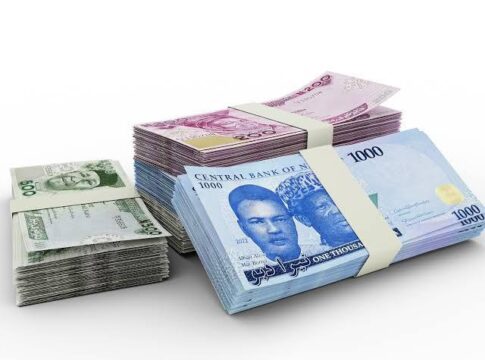The Nigerian naira is teetering on the edge of a foreign exchange crisis, threatening the financial stability of Africa’s largest economy.
The naira opened Friday trading at N1,580/$ on the parallel market, slightly firmer than Thursday’s N1,590/$, despite a surging dollar globally. However, analysts warn that this modest gain masks deeper risks tied to Nigeria’s dependency on oil revenues and foreign portfolio inflows.
FX liquidity remains tight. The Association of Bureau de Change Operators of Nigeria (ABCON) has raised concerns that commercial banks are withholding dollars from bureau de change operators. “We are grappling with serious shortages,” said Aminu Gwadabe, ABCON President, highlighting worsening conditions for retail forex buyers.
READ MORE: Ugandan Judge Convicted in UK Human Trafficking Case Under Modern Slavery Act
Nigeria’s fragile reliance on crude oil is under fresh strain. The Trans-Niger Pipeline, a vital channel transporting oil from the Niger Delta to Bonny terminal, was hit by an explosion earlier this week, causing a fire and forcing a reroute of crude flows.
Militants have also threatened fresh attacks on oil infrastructure in Rivers State amid political tensions over federal fund distribution. This follows Nigeria’s peak oil output of 1.7 million barrels/day in 2024, which the government hopes to increase by 1 million barrels/day in two years — an ambition experts now deem unrealistic due to theft and sabotage.
While the naira’s relative stability earlier this year helped cool inflation — which eased from 24.48% in January to 23.18% in February, according to the National Bureau of Statistics — new headwinds are emerging. Demand for Nigeria’s one-year treasury bills plunged to ₦861 billion on Wednesday, down from ₦1.5 trillion in early 2024, despite the CBN raising yields to 24.9%.
This fall in investor appetite signals fading confidence in Nigeria’s economic stability, especially as global investors grow more risk-averse. The U.S. Federal Reserve’s decision to hold rates steady this week and maintain its projection of two cuts in 2025 is further fueling dollar strength, placing added pressure on emerging market currencies like the naira.
Amid a turbulent geopolitical backdrop — with ongoing conflicts in Ukraine, Gaza, and rising tensions in Turkey — investors are fleeing to safer assets like U.S. Treasuries. Strong U.S. economic data and resilient labor markets have also reinforced the dollar’s position, with the Dollar Index trading firmly in the 103–104 range.
For Nigeria, this confluence of external shocks and internal structural weaknesses presents a stark warning: without urgent reforms and FX inflows, the naira may not hold the line for much longer.




